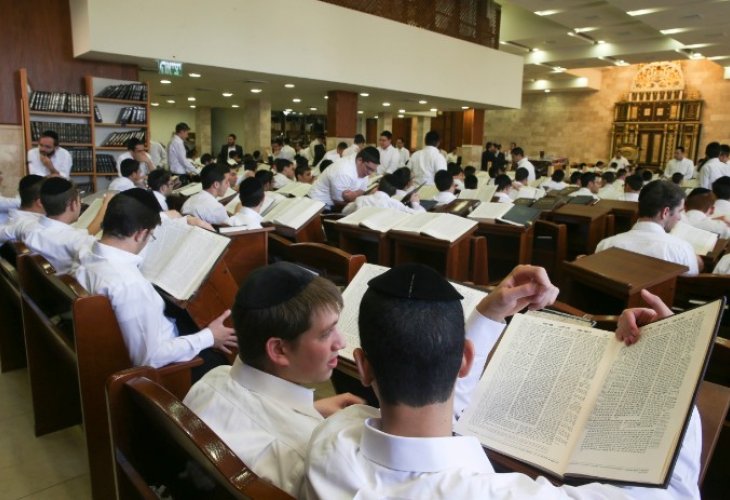Personal Stories
A Father’s Wisdom: Protecting Torah and Protecting Feelings
His rare sensitivity and wisdom teach a powerful lesson in humility, modesty, and protecting others from jealousy
 (Illustrative photo: Nati Shohat / Flash 90)
(Illustrative photo: Nati Shohat / Flash 90)Rabbi Moshe Shulzinger once shared a beautiful story that offers a glimpse into the deep sensitivity and thoughtful care shown by Torah scholars of earlier generations.
The story takes us into the home of a twelve-year-old boy named Zelig Reuven Bengis, who would one day become the Chief Rabbi of Jerusalem. At that young age, a very important conversation took place in his home. The family needed to decide which yeshiva (Jewish school for advanced Torah learning) he should attend.
In those days, there weren’t many yeshivas to choose from, but it was still a significant decision. The two main options were the Mir Yeshiva and the Volozhin Yeshiva both known for their greatness in Torah learning. The family members shared different opinions, each one supporting a different school based on spiritual and educational factors, such as the learning style and the structure of the classes.
Then the father spoke. He turned to his son and said, “Both yeshivas are excellent. But I think you should go to the Volozhin Yeshiva. I heard that the benches there are wider.”
Everyone in the room was surprised. They had all been talking about spiritual matters and no one had brought up something so practical and physical.
Sensing their confusion, the father gently explained: “You’ll be learning late into the night sometimes until midnight, or even one or two in the morning. You’ll be filled with such a strong desire to continue studying, like someone who can’t go without his favorite drink. But at the same time, you’ll be tired. And in Volozhin, where the benches are wide, you’ll be able to lie down for a short nap. After a bit of rest, you can wash your hands and go right back to learning. But in Mir, the benches are narrow. You’ll have to go all the way back to your room to sleep. That could waste several minutes each time and every minute of Torah is so valuable.”
Then the father added with warmth and wisdom, “This is just my suggestion. You should make your own decision based on everything you’ve heard. But please decide quickly because every moment counts when it comes to Torah learning.”
Then, to everyone’s surprise, the father made a very unusual request. “Please don’t tell me where you decide to study. Hashem will be with you in whatever you choose. But I ask you not to tell me, not now, and not even later. If, four months from now, you send me a letter telling me how much you’re enjoying yeshiva and how well you’re doing in your learning, please don’t tell me where you are.”
Why? The father explained his reasoning with incredible thoughtfulness. “Let’s say you end up choosing Volozhin. If someone comes and asks me where my son is learning, I’ll feel obligated to answer truthfully. But what if that person hasn’t been blessed with children who are able to learn Torah at that level? What if it stirs up feelings of jealousy or pain in his heart? I’d rather not know, so I can honestly say, ‘I don’t know.’ That way, no one feels bad.”
This was no ordinary father. His love for Torah was matched only by his deep care for others. His level of sensitivity, thinking not only about his son’s learning but also about how that learning might affect someone else’s heart offers a timeless example of humility, compassion, and true Jewish values.

